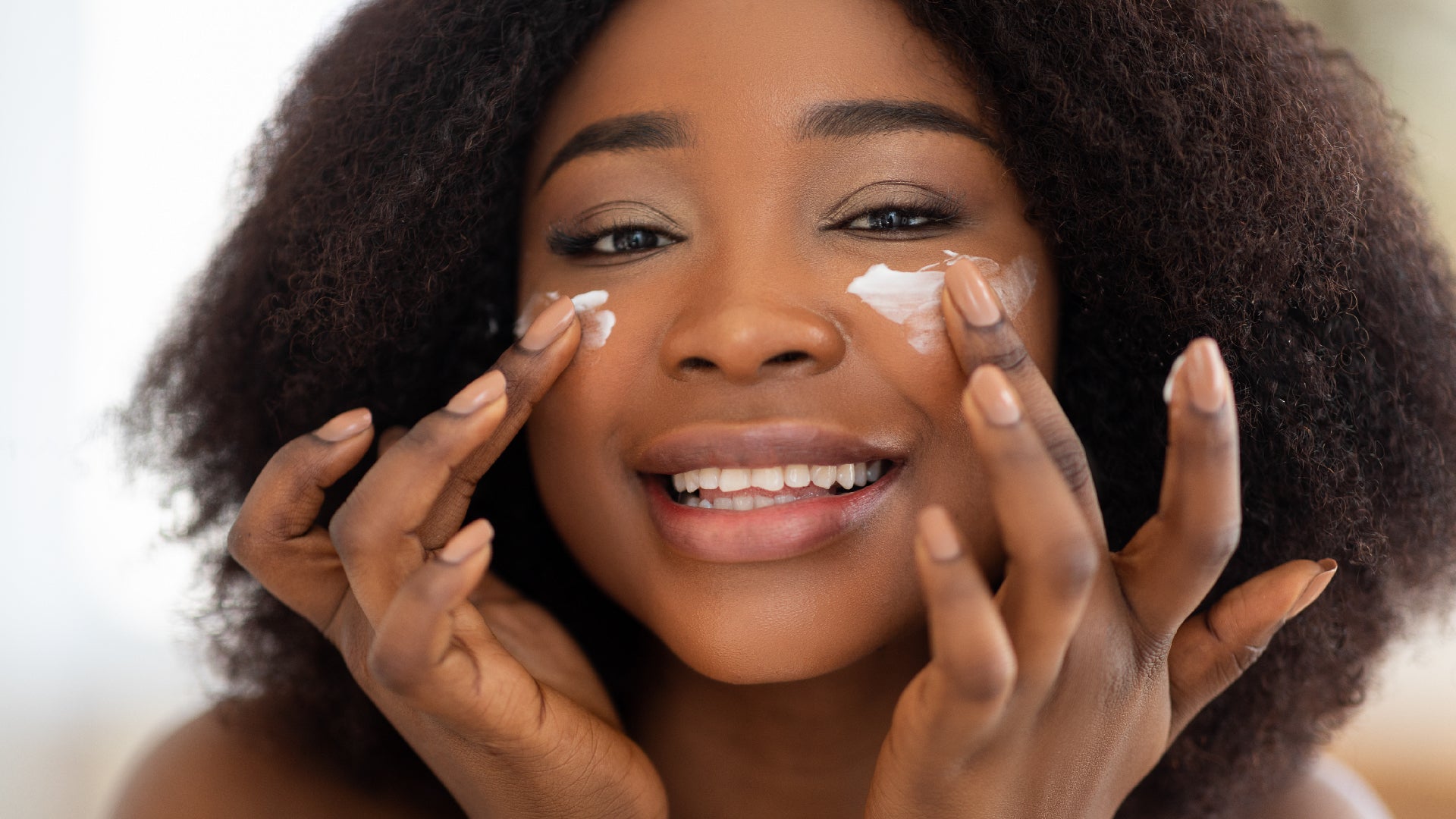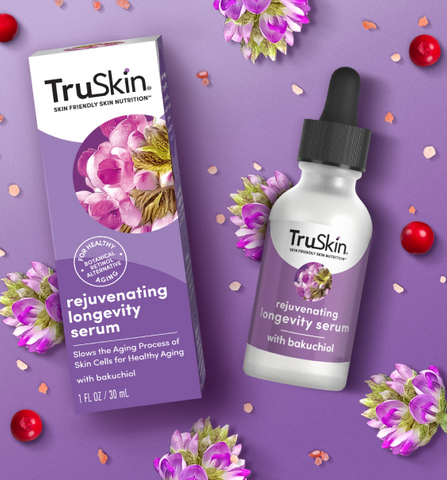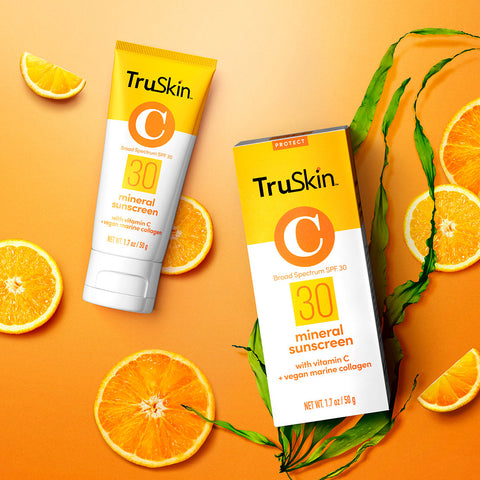
The Best Barrier Repair Tricks For Unhappy Skin
Skin that’s unusually dry, itchy, dull or overly oily is trying to tell you something. And you need to listen.
Everyone’s skin can get a little sensitive now and again. Life just happens. Maybe you’ve overdone it with the retinol, perhaps your hormones are all over the place, or hold on, what about all those late nights you’ve been pulling recently? There are many factors, like these, that can upset your skin. And it’s your barrier function that first shows the signs of stress, furnishing you with all manner of skin peskies like dryness, itchiness, redness, inflammation, breakouts and dehydration.
Sounds familiar? Then read on for the best ways to improve your skin’s barrier function.
But First, What Is The Skin Barrier?
Your skin’s barrier is technically referred to as the stratum corneum. If you don’t care about fancy names, however, that’s fair enough, but know the following: your skin consists of three main layers. The deepest layer is the hypodermis which supplies blood and keeps your skin attached to your bones and muscle. On top of that you have the dermis which is where all the good stuff like hair follicles, sweat glands and blood vessels hang out. Then, right at the top is the epidermis which protects all the rest. The epidermis is pretty complex and consists of many intricate layers – the top of which is the stratum corneum, aka the skin’s barrier.
Your skin’s barrier is like a brick wall built from around 20 layers of cells. It provides your body with its first line of defense against things like pollution, allergens and other irritating environmental stressors. Being the outermost layer it’s vital for keeping these bad guys out, but it also works super hard to keep moisture in, helping to maintain soft, supple and healthy skin.
Truth is, your skin’s barrier is vital for the health of your entire skin. And it really gets put through the mill.
What Causes Damage To Your Skin’s Barrier?
So. Many. Things. Most of which you can probably guess, but here’s a list of the ten most common triggers of a compromised barrier function…
- Stress
- Over-exfoliation
- Natural aging
- A lack of sleep
- Harsh, chemical-laden skincare products
- Smoking
- Poor moisturizing
- UV radiation
- Environmental pollution
- Extreme temperatures
It’s also worth noting that everyone’s skin composition is different, so certain triggers that might break down your skin’s barrier might be totally fine for the next person. Pale skin, for example, naturally has a thinner and weaker barrier than darker skin types which means it’s more prone to irritation from common aggressors.
Your skin barrier also weakens as you age, so while your skin might have been totally unbreakable in your 20s, by the time you hit your 40s certain triggers can, out of the blue, start to have negative effects.
What Are The Signs That Your Skin Barrier Needs Help?
When your skin barrier is in good shape, your skin will look and feel just as awesome – glowing, healthy, moisturized and smooth. If it gets compromised, however, nothing good will come of it. We’re talking dryness, dehydration, itching, inflammation, redness, breakouts and more. Active products in your skincare regime might also produce stinging or burning effects that were never there before.
How To Repair The Skin Barrier
Once you’ve determined that your skin barrier is not feeling up to snuff, you need to think about the best ways to help strengthen and fortify it. And there are two important areas to take into account.
1. Your Skincare Routine
The most common and easiest way to damage and disrupt your skin’s barrier is through a complicated or over-zealous skincare routine. Harsh cleansing or exfoliating too hard and too often are massive no-nos as these can strip your skin’s barrier of the natural moisturizing factors that help to keep it healthy and in optimum working order. The same goes for applying too many active ingredients like retinol, glycolic acid and vitamin C on the reg. Basically, you just need to live by the classic rule that less is always more.
Stick to once or twice weekly exfoliation and only ever apply one facial serum at a time – no disrespect, but cocktailing active ingredients is best left to the professionals. Of course, you can still enjoy the benefits of different active ingredients but if your skin can’t hack it, don’t push it. Instead, try applying your serums on alternative days or just a couple of times a week. We love to use Retinol Facial Serum twice a week, and our Rejuvenating Longevity Serum every other evening. This, combined with Vitamin C Facial Serum in the mornings, makes for a pretty dynamite but caring combination.
Other important parts of your skincare regime to take into account? Well, do you like to shower, bathe and/or cleanse your face with super hot water? Bad idea. This strips your skin of essential moisture and lipids, totally compromising your delicate barrier function. Lukewarm water all the way, baby.
And to finish... two words: sunscreen and moisturizer. These are two of the most important products to have in your barrier-protecting skincare routine so never scrimp on either. Moisturize your skin every time you cleanse, using products that contain ingredients like ceramides, hyaluronic acid, squalane and niacinamide. These proactively help to strengthen and hydrate your barrier function. Then, always apply plenty of SPF 30 Mineral Sunscreen every morning without fail. But c’mon, you MUST know that by now…
2. Your Lifestyle Habits
Getting your skincare routine ship-shape is one thing, but you must also think about your entire lifestyle if you truly want to make a difference to the health of your skin’s all-important barrier.
Do you smoke? Maybe think about trying to stop that. Studies show that nicotine and other harmful chemicals found in cigarettes get absorbed into your skin, damaging blood vessels and changing the structure and function of certain cells which impairs healing and makes your skin age at lightning speeds. And vaping? Same thing.
Stress and a lack of sleep (which often go hand in hand) are other important ways in which your skin’s barrier can become negatively affected. Both throw your hormones out of whack and suck away important lipids and proteins in the skin, increasing transepidermal water loss (TEWL) and acclerating dehydration. Sure, it may be easier said than done to stress less and sleep more, but try to take time out for yourself each day by going for a walk or reading a book. And get thee to bed. Eight hours is the sweet spot but you should aim for at least seven.
Finally, you are what you eat so try to cut down on refined carbs, processed foods and sugar, and increase your intake of antioxidant-rich fruit and veggies, nuts, whole foods and oily fish. Oily fish, in particular, are incredible for the skin barrier because they’re high in omega-3 fatty acids which help decrease inflammation while improving your skin’s elasticity and moisturization.
Do all this and you barrier will start to look and feel better in no time, promise.








